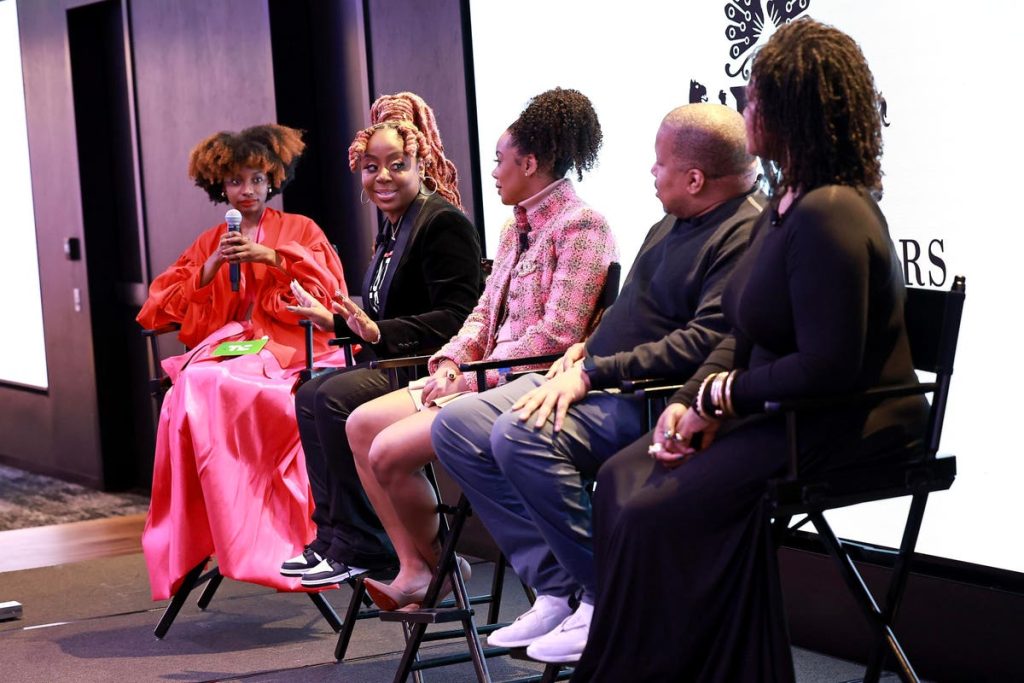Today is Black Women’s Equal Pay Day in the U.S. It signifies how far into the following year Black women have to work to earn the same as their non-Hispanic White male counterparts earned the previous year. For comparison, all-women’s equal pay day was more than four months ago, on March 14.
Most of the time when people talk about Black Women’s Equal Pay Day, they focus it on employees, and making sure that companies work towards both gender and racial pay equity.
But Black Women’s Equal Pay Day goes deeper than that. As we think more about the creator economy and the ways in which brands work and engage with consultants, suppliers, influencers, and other partners, the conversation about closing the pay gap needs to expand.
Black women are the fastest growing segment of entrepreneurs. One study showed that from 2014 to 2019, the number of businesses owned by Black women grew by 50%. During that time period, Black women accounted for 42% of all women owned business. But even with all that growth, that same study showed that the average revenue for Black-women owned founders was just $24,000, compared to $142,900 for all women-owned businesses.
Part of the challenge impacting the success of Black women-owned businesses are fewer brands and businesses hiring them for their services. This changed for a while in summer 2020 after the murder of George Floyd when brands put a great amount of focus on working with Black-owned businesses. But that eagerness and intention has sense waned.
Public speaking coach Jam Gamble expressed her frustration with the shift in brands attention on Instagram earlier this month: “Remember when brands were SO eager to collaborate with Black creatives back in 2020-2021? Ahh, what a time to be alive. Fun fact: things are back to normal as we all anticipated.”
Buying from Black-women owned businesses is a simple solution that helps close the pay gap for Black women entrepreneurs. Buying from Black-women is also just good businesses, especially for brands who want to build more diverse customer base. Here are two ways your brand can actively support closing the pay gap for Black women.
Diversify your network
One reasons why many Black women business owners don’t get the same opportunities as other entrepreneurs, is due to the way many people find partners to work with. Business partnerships are often formed through networking. And unfortunately, many people have largely homogeneous networks, as evidenced by that Kristin Bell dinner party photo that sparked so much controversy.
Be intentional about diversifying your network and your circle of influence. And specifically, as it relates to closing the pay gap for Black women, add Black women to your network.
The more Black women you have in your network and have relationships with, the more likely you’ll be to have them top of mind when it comes time to partner with a supplier. If Black women aren’t even in your consideration set, then that means opportunities will continue to be unavailable for them, which has a negative impact on their earnings.
The more diverse your network and circle of influence is, the more equipped you’ll be to serve people from communities you’re not a part of.
Be intentional about buying from Black women
Supplier diversity is important, and lots of companies have programs that enable them to focus on making sure they are working with a diverse set of vendors. But supplier diversity is broad, because there are so many dimensions of diversity.
That’s why some brands take their supplier diversity efforts a step further to be specific about the amount of their spend they want to dedicate to Black-owned businesses. In 2020, retailer Target pledged to invest $2 billion with Black-owned businesses by the end of 2025. Since making that pledge, the brand has increased investments by more than 50% from Black-owned brands, companies, and suppliers. They’ve also expanded their collaborations with Black designers and creators for their own products and marketing.
Other brands, including beauty retailer Sephora, are taking the 15% pledge, which is when brands commit to dedicating at least 15% of their shelf-space to Black-owned businesses.
Working with Black suppliers, creators, and influencers better helps brands to serve a more diverse consumer base, including the Black community. While most of these pledges brands are making focus on Black entrepreneurs and creators as a whole, they undoubtedly benefit Black-women owned businesses as well.
Everyone has a role to play when it comes to tearing down systemic barriers that ultimately result in unequal degrees of success for certain communities. The pay disparity for Black women isn’t just a problem for the Black community, for human resources departments, or hiring managers.
It’s a problem that every marketer and business leader can impact for the better. Take a look at your numbers, and evaluate what percentage of your network is made up of Black women, and what percentage of your budget goes to Black-women owned businesses. If the number doesn’t come close to being a representative number, then you know you’ve got work to do.
Read the full article here










